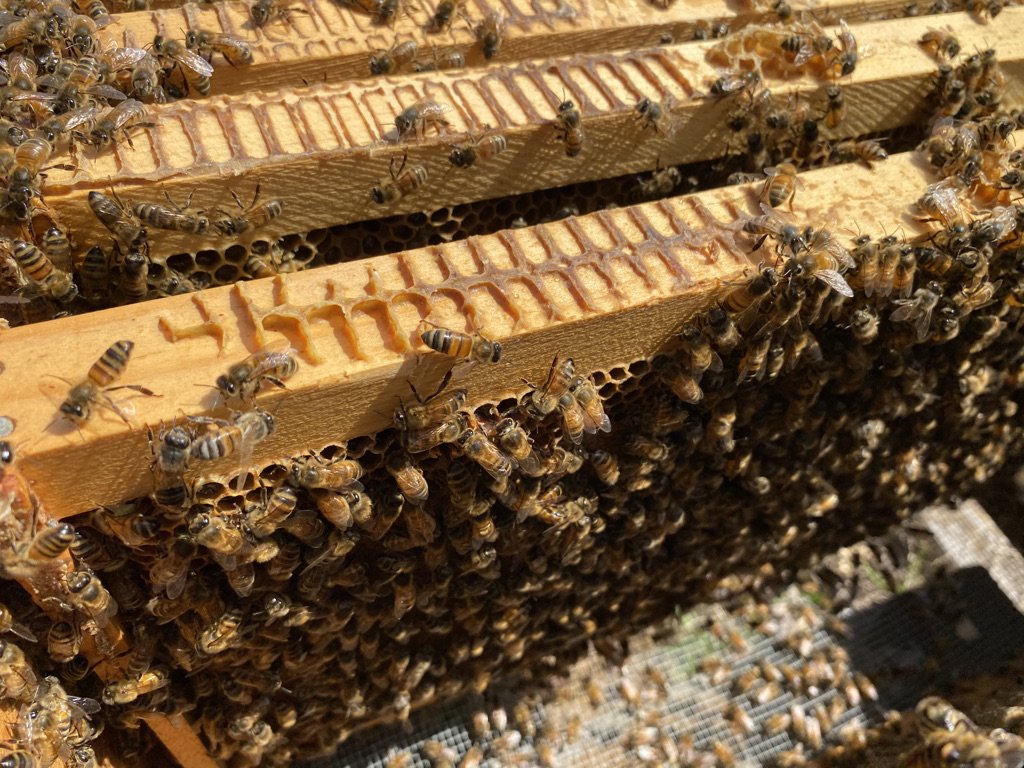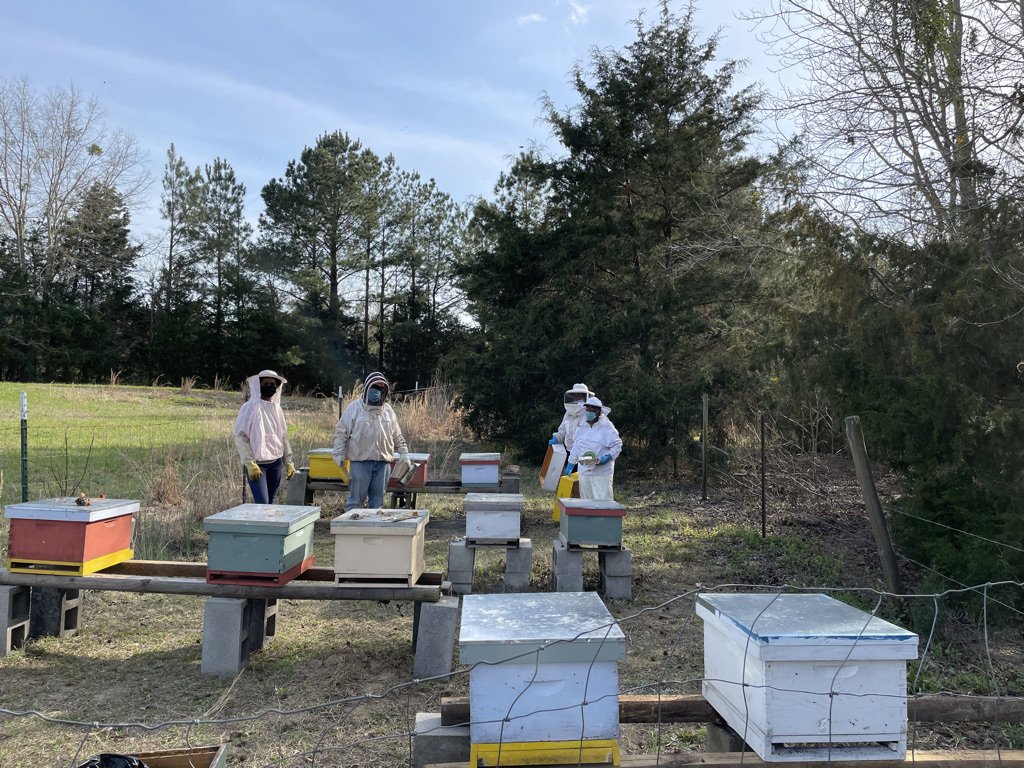
The Buzz About Beekeeping
Meet Our Hives!
We currently have twelves hives we lovingly care for.
Some of our hives are at a local farmer's location that we partner with. We provide another layer of assured pollination for their crops, and they help feed our bees.
We Got You Covered
PPE we provide at the farm
-

Gloves
We provide special beekeeping gloves to ensure safety while in the hive, simulanteously improving your grip of the frames and tools you will use
-

Beekeeper's Jacket
Our key, most recognizable beekeeping apparel! He provide suits that are breathable for any climate, and provide enough coverage from the lovely (sometimes stinging) ladies.
-

Beekeeper's Suit
This is for folks who need a bit more coverage!
-

Smoker
Although this isn’t an item that we wear, it’s still a form of PPE; as it diverts bees from flying around and drives them inside their hive!
Beekeeping Facts!
-
An apiarist manages and monitors the environment for the bees.
Bees are self-sustaining and smart creatures! Apiarists observe their behavior and assess what can be improved to help their health and probability of survival and productivity.
Anthropogenic disturbances (think climate change, the lack of pollen-heavy flowers, or the application of harsh insecticides), organisms everywhere have experienced significant losses on their population and ability to thrive, particularly honeybees.
Apiarists' job is to mitigate some of those harmful outcomes by offsetting them (participating in regenerative agriculture!)
Honeybees also experience invasions in their hive. If they become overcome somehow, apiarists can assist! We administer specific treatments if pests or diseases overwhelm or weaken the hive.
You can learn more at our farm!
-
What you will be(e) surprised on our farm is how each hive has a different temperament and style!
There are many differences between a hive of bees: their pheromones, their receptiveness to human interaction, the effectiveness with which they defend their hive, and more!
Myriad factors can explain these differences: their genetics, the type of bees they are, the resilience of those particular bees, how effective their queen is, the immunology of the bees, and, you guessed it, more factors!
To learn more, come to our farm and get acquainted with the ladies (and the gentlemen, depending on which time you come:

